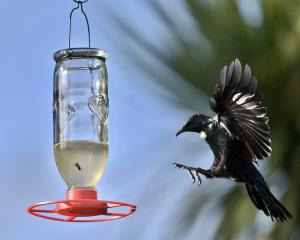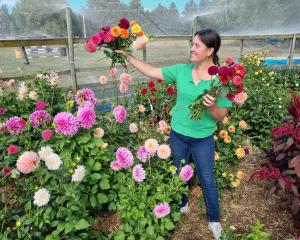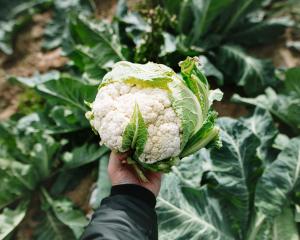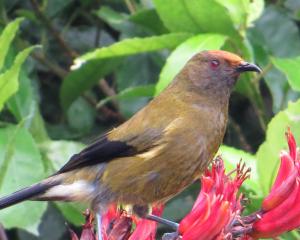A Mosgiel couple who began breeding roses for fun are soon to have their second commercial release, reports Gillian Vine. At the front door of Dawn and George Agnew's Mosgiel home, the perfume is glorious. Roses? No, says Dawn Agnew, the sweet scent is from just one plant, a potted pinky-red one.
"It's the best perfume we've ever had," she says.
The Agnews have high hopes for this rose, a cross between dusky red Lasting Love and peach-apricot Hamilton Gardens, but marketing it may be several years away.
In the meantime, they have their second commercial release to look forward to.
Their Pam Bartrum, a soft pink rose, has been chosen to commemorate the life and work of a South Canterbury rose exhibitor and international judge, Pamela Bartrum.
It is being grown by Edendale's Southern Roses and appears in the company's 2011 catalogue.
The Agnews did not give the rose its name but sold the naming rights, just as they had done a year earlier with Janice Wallis, a rose that honours the woman who was Heritage Roses Central Otago's convener in the 1990s.
The pink rose, a cross of White Lightnin' and Moody Blues, is also grown and distributed by Southern Roses.
The Agnews have recently been asked to submit a rose for a competition to choose a rose for Palmerston North in 2013 and if their entry is successful that rose, too, will be commercially released.
When they started rose breeding in 1999, they say they simply saved hips and grew the seeds, which anyone who wants to try their hand can do.
These days, the Agnews' approach is more scientific.
They take two roses, the seed parent and pollen parent, and cover the flowers to prevent bees pollinating them. The seed parent, or mother plant, is often chosen because it is a reliable producer of plump hips with plenty of seeds. Elina, Lasting Love and the popular climber, Compassion, all produce good hips. Others, such as Hamilton Gardens and Moody Blues, are better used as the pollen parent.
What never ceases to amaze the Agnews is the variety that can come from a single hip. Sometimes, the parentage can be discerned as, for example, with Love Divine, which has the same three-part leaves as its pollen parent; or Pink Paradise, which looks a little like its seed parent, Compassion. Others, like the aptly named George Surprise and Fruit Salad, look totally unlike their parents.
The colour of offspring will often be different, too. When the Agnews crossed bronze Spek's Centennial with the unique pale coffee-coloured Julia's Rose, the result included two superb roses, coppery Julia's Baby and dusky pink Dusky Julia.
Both are stronger growing than the notoriously temperamental Julia's Rose.
Naming roses can be fun, but it can be a challenge. For instance, a lovely two-toned pink and cream rose is about to have a name change.
"We call it Hope but we won't be able to keep that name, as there's already one on the market called that," Dawn says.
Each year, about 10 of the Agnews' varieties are budded on in Edendale, then those not needed are returned to the couple.
They pot them and sell them, giving gardeners an opportunity to grow something unique and to give feedback on how the rose performs.
Learn more
For information about roses available this winter, contact Dawn and George Agnew, phone (03) 489-4712.












